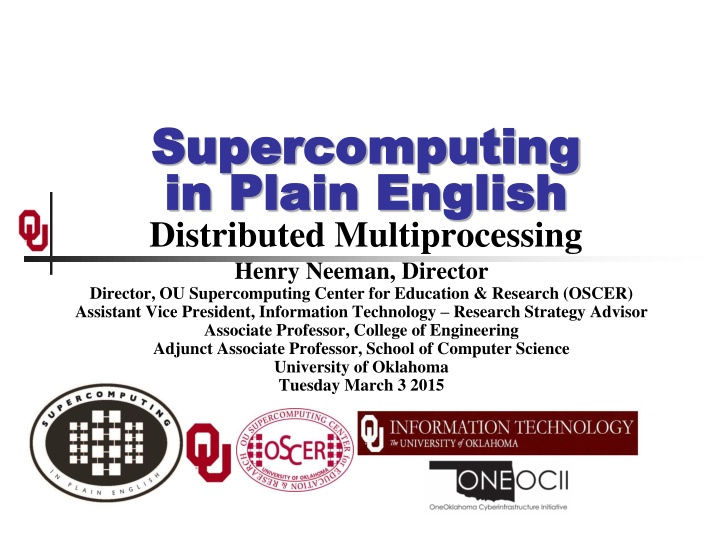
Supercomputing in Plain English: Distributed Multiprocessing
Explore the world of supercomputing in an easy-to-understand manner through distributed multiprocessing as explained by Henry Neeman, Director at OU Supercomputing Center for Education & Research. Learn about the challenges and solutions in this field. Join the session for valuable insights.
Download Presentation

Please find below an Image/Link to download the presentation.
The content on the website is provided AS IS for your information and personal use only. It may not be sold, licensed, or shared on other websites without obtaining consent from the author. If you encounter any issues during the download, it is possible that the publisher has removed the file from their server.
You are allowed to download the files provided on this website for personal or commercial use, subject to the condition that they are used lawfully. All files are the property of their respective owners.
The content on the website is provided AS IS for your information and personal use only. It may not be sold, licensed, or shared on other websites without obtaining consent from the author.
E N D
